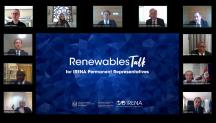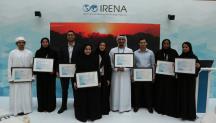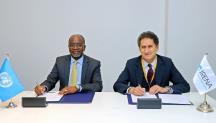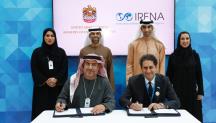

From Negotiation to Action: Scaling-up Renewables Post COP21
Newsletter
Op Ed by IRENA Director-General Adnan Z. Amin (originally published in Gulf News)
Less than two months ago, world leaders adopted a landmark climate agreement in Paris, securing decisive global action on climate change. The 32-page agreement has two goals, to hold the increase in global average temperature to well below 2°C above pre-industrial levels, and to rapidly cut emissions on a global scale to achieve this.
Implicit in these goals is the need to significantly decarbonise the energy sector, which accounts for two-thirds of global emissions. Nearly 190 countries submitted pledges to reduce domestic emissions as part of the agreement, and the majority refer to energy transformation as a key component of their strategy.
Now that negotiations are complete and targets set, the real action must begin.
We now know that doubling renewable energy in the global energy mix by 2030 can provide half the emission reductions needed to limit temperature rise to 2°C, while energy efficiency can provide the rest. To achieve this however, ambition must continue to grow and existing pledges must be translated into national policies and implementation strategies.
In this context, leaders from more than 150 countries gathered in Abu Dhabi in January for IRENA's sixth Assembly and the subsequent events of Abu Dhabi Sustainability Week. As the first intergovernmental meeting after the UN Climate Conference in Paris, the Assembly approved the IRENA work programme and budget, and provided a platform for discussion to help accelerate the ongoing global energy transition.
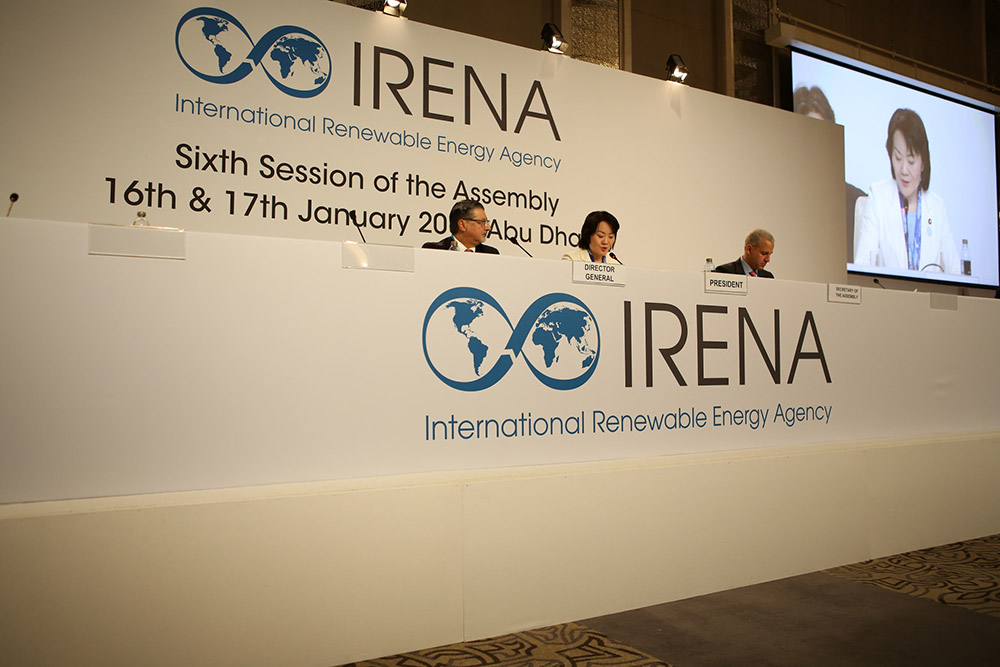
Just over one month out from the agreement, we are already seeing a number of key developments in the energy sector. In the U.S., Congress approved the 5-year extension of tax credits for wind and solar electricity production, providing a major boost for the renewable energy sector. In India, plummeting costs for renewable energy technologies are increasingly displacing coal in power generation. Spain announced it will hold its first auction for renewables in three years, and China announced massive cutbacks on coal mining and plans to increase wind and solar power capacity by more than 21 per cent. A new report also found that, in the wake of the Paris Agreement, demand for coal has dramatically stalled after years of growth.
The IRENA sixth Assembly and Abu Dhabi Sustainability Week 2016 built even more momentum to drive this shift from fossil fuels to renewable energy.
In January, IRENA released the first ever report quantifying the macroeconomic impacts of renewable energy deployment. It finds that doubling the global share of renewable energy by 2030 would boost global GDP by as much as 1.1 percent. That equates to USD 1.3 trillion – more than the combined economies of Chile, South Africa and Switzerland. Beyond that, it would dramatically improve global welfare and generate more than 24 million jobs.

Another IRENA report released in January detailed the benefits that GCC countries (Bahrain, Kuwait, Oman, Qatar, Saudi Arabia and UAE) can realise by achieving their renewable energy targets. Figures indicate the region can save 2.5 billion barrels of oil and reduce water consumption by roughly 16 per cent, a critical benefit for the region, where fresh water is scarce, and likely to become even more so.

These two reports provide just the latest evidence that achieving the needed energy transition would not only mitigate climate change, but also stimulate the economy, improve human welfare and boost employment worldwide.
We have the evidence that the energy transition makes social, economic and environmental sense. We have the needed renewable technology to provide cost-effective, reliable energy. We also now have a strong political signal and global commitment thanks to the Paris Agreement. All that remains is to implement the policies and programmes that can drive investment, build capacity and strengthen international cooperation to further support the energy transition.
Photos from the IRENA sixth Assembly and Abu Dhabi Sustainability week
